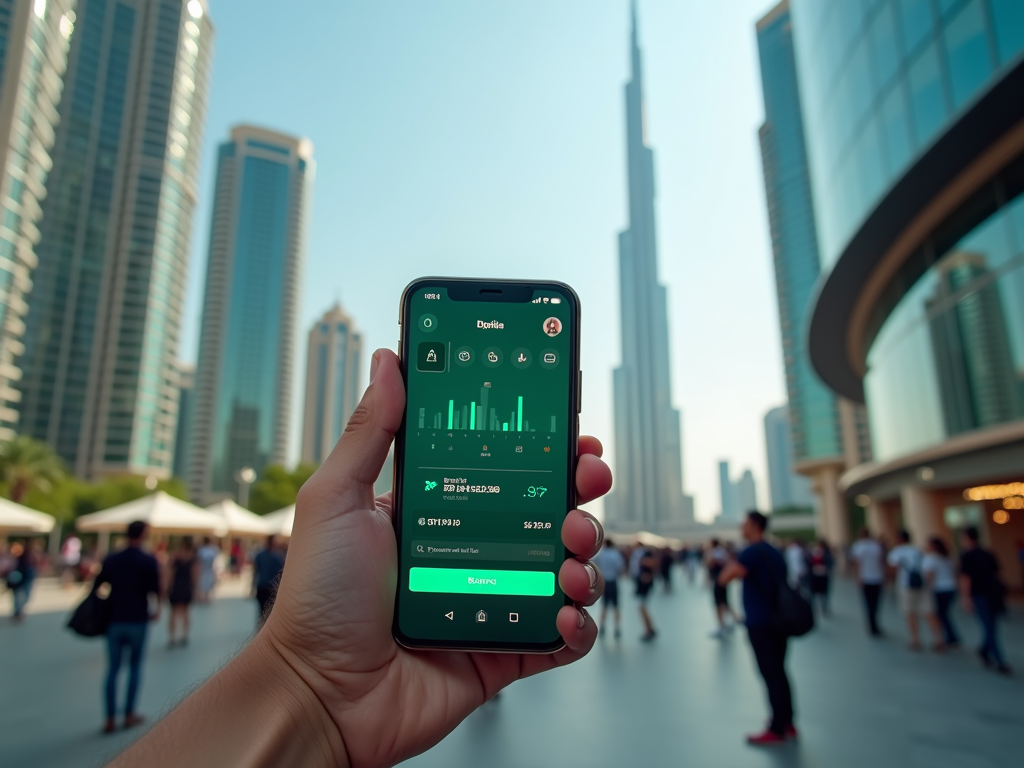Cryptocurrency and blockchain technology have become pivotal forces shaping the business landscape in Dubai. As a major financial hub in the Middle East, the city is rapidly embracing digital currencies and blockchain solutions. This transformation is not just a trend but a strategic move aimed at enhancing transparency, security, and efficiency across various sectors. Both startups and established corporations are exploring innovative applications of these technologies, creating a vibrant ecosystem for the future of financial transactions. In this article, we delve into the factors driving the rise of cryptocurrency and blockchain in Dubai, the implications for businesses, and the challenges that lie ahead.
Factors Contributing to the Growth of Cryptocurrency in Dubai

Several factors make Dubai an attractive location for cryptocurrency adoption. Firstly, the government’s proactive regulatory stance encourages innovation and provides a supportive environment for blockchain enterprises. Secondly, the United Arab Emirates (UAE) boasts a high smartphone penetration rate, leading to increased engagement with digital currencies. Thirdly, Dubai’s strategic geographical location acts as a bridge between East and West, attracting global investors and entrepreneurs. Lastly, significant investments in technology infrastructure facilitate the seamless integration of blockchain into existing systems. These key elements work cohesively to reinforce Dubai’s status as a burgeoning blockchain hub while attracting international businesses interested in leveraging this revolutionary technology.
The Role of Government and Regulation

The Dubai government has been instrumental in fostering the rise of cryptocurrencies and blockchain technology. Through initiatives like the Dubai Blockchain Strategy, the city aims to become the first city fully powered by blockchain by 2025. This initiative illustrates the government’s commitment to innovation and the digital economy. Additionally, the Financial Services Regulatory Authority (FSRA) has launched frameworks for the regulation of virtual assets to maintain security and investor confidence. This proactive approach sets a precedent for other global cities and encourages businesses to integrate digital currencies and blockchain solutions. The combination of a supportive regulatory environment and a forward-thinking government positions Dubai favorably for the future of digital finance.
Industries Leveraging Blockchain Technology
Various industries in Dubai are effectively leveraging blockchain technology to enhance their operations. These industries include:
- Finance: Traditional banking systems are increasingly adopting blockchain for secure and efficient cross-border transactions.
- Real Estate: Blockchain simplifies property transactions through smart contracts, ensuring transparency and reducing fraud.
- Supply Chain Management: Companies are utilizing blockchain to track products, enhance traceability, and optimize logistics.
- Healthcare: Blockchain provides secure health records and improves data sharing among medical professionals.
- Tourism: Tokens can be used for loyalty programs, enhancing the customer experience and engagement.
These applications illustrate the versatility of blockchain technology and its potential to drive growth across multiple sectors, positioning Dubai as a leader in digital transformation.
Despite its promising growth, the adoption of cryptocurrency in Dubai isn’t without challenges. One significant hurdle is the volatility associated with digital currencies, which can deter potential investors and users. Additionally, there is an ongoing concern regarding cybersecurity and the potential for hacking, which poses risks to users and businesses alike. Education and awareness about cryptocurrencies are still developing, leading to knowledge gaps among potential users. Furthermore, regulatory harmonization across different jurisdictions can complicate cross-border transactions. Addressing these challenges is crucial for ensuring a sustainable and secure cryptocurrency ecosystem in Dubai.
Conclusion
The rise of cryptocurrency and blockchain technology in Dubai’s business world is a noteworthy development that showcases the city’s commitment to innovation and digital transformation. With a supportive regulatory framework, substantial investments in technology infrastructure, and active participation across various industries, Dubai is well-positioned to lead the charge into the future of finance. However, to fully capitalize on the diverse opportunities presented by these technologies, it is essential to address the associated challenges. As the landscape continues to evolve, businesses and regulators must collaborate to create an environment that fosters growth while ensuring security and sustainability.
Frequently Asked Questions
1. What is the Dubai Blockchain Strategy?
The Dubai Blockchain Strategy aims to make Dubai the first city fully powered by blockchain technology by 2025, enhancing efficiency and transparency in various sectors.
2. How does cryptocurrency benefit businesses in Dubai?
Cryptocurrency offers businesses reduced transaction costs, fast cross-border payments, enhanced security, and improved traceability, benefiting various industries.
3. Are cryptocurrencies regulated in Dubai?
Yes, the Financial Services Regulatory Authority (FSRA) has established regulations for virtual assets to ensure security and investor confidence in Dubai’s cryptocurrency landscape.
4. What are the major industries utilizing blockchain in Dubai?
Industries such as finance, real estate, supply chain management, healthcare, and tourism are leveraging blockchain technology to enhance their operations.
5. What challenges does cryptocurrency face in Dubai?
Challenges include market volatility, cybersecurity risks, limited public awareness, and the need for regulatory harmonization across jurisdictions.
